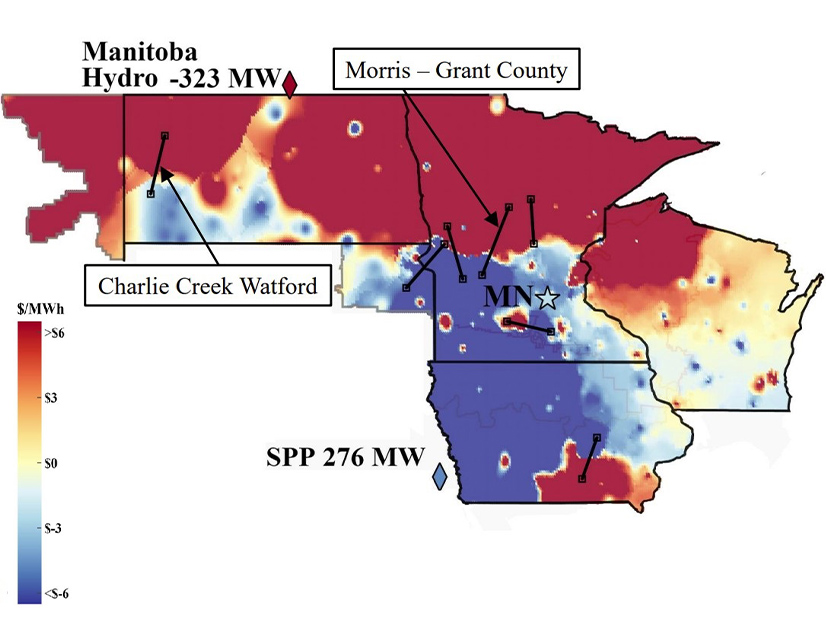
Montana-Dakota Utilities Co. has filed a complaint against MISO and SPP over a market-to-market flowgate chronically congested by a new cryptocurrency mining operation in SPP.
The utility said the RTOs are violating their joint operating agreement by conducting “unwarranted” and “unjust” M2M congestion coordination on the Western Area Power Administration 230-kV Charlie Creek-Watford line in North Dakota (EL 24-61).
Montana-Dakota Utilities — a MISO member — said its customers have been overcharged about $18 million for congestion on Charlie Creek-Watford. It said FERC should order a stop to MISO and SPP’s M2M coordination on the line, direct SPP to refund payments MISO made to it for M2M coordination and order refunds for “duplicative payments made by Montana-Dakota for M2M coordination.”
The company also said FERC should pronounce MISO and SPP’s interregional coordination process unreasonable because it allows MISO or SPP to “insist on continued coordination of a flowgate” even when the coordination is not shown to reduce congestion. MISO and SPP should be conducting M2M coordination only when it’s effective at cutting congestion, Montana-Dakota argued.
Montana-Dakota maintained the RTOs’ interregional coordination process never should have been enacted in the case of Charlie Creek-Watford because the constraint “was of local, not regional, concern.”
“SPP’s decision to enact and maintain M2M coordination for the local issue of congestion on the Charlie Creek-to-Watford City line violated and continues to violate [the JOA] and constitutes an unjust and unreasonable practice,” the utility told FERC. If SPP “continues to insist on use of M2M coordination for the Charlie Creek-to-Watford City line congestion issues, then Montana-Dakota and its customers will continue to be unfairly and unjustly assessed overlapping congestion charges.”
MISO’s Independent Market Monitor late last year called attention to the flowgate as a major source of congestion since the line began delivering power to 220 MW in new load from a cryptocurrency mining operation. (See MISO and IMM: M2M Flowgate Issue with SPP not Sustainable, May Require Litigation.)
MISO IMM David Patton said MISO and SPP should revoke Charlie Creek-Watford’s status as an M2M constraint because MISO can offer little congestion relief for the line and it’s costing MISO millions in payments.
MISO staff said new load was allowed to be activated in an already-constrained SPP load pocket with planned transmission upgrades for the area not in service yet.
MISO itself hasn’t ruled out litigation with SPP over the overworked flowgate.
In mid-January, MISO deputy general counsel Kristina Tridico confirmed that MISO pursued alternative dispute resolution with SPP over the constraint and is at the “beginning stages” of negotiations.



